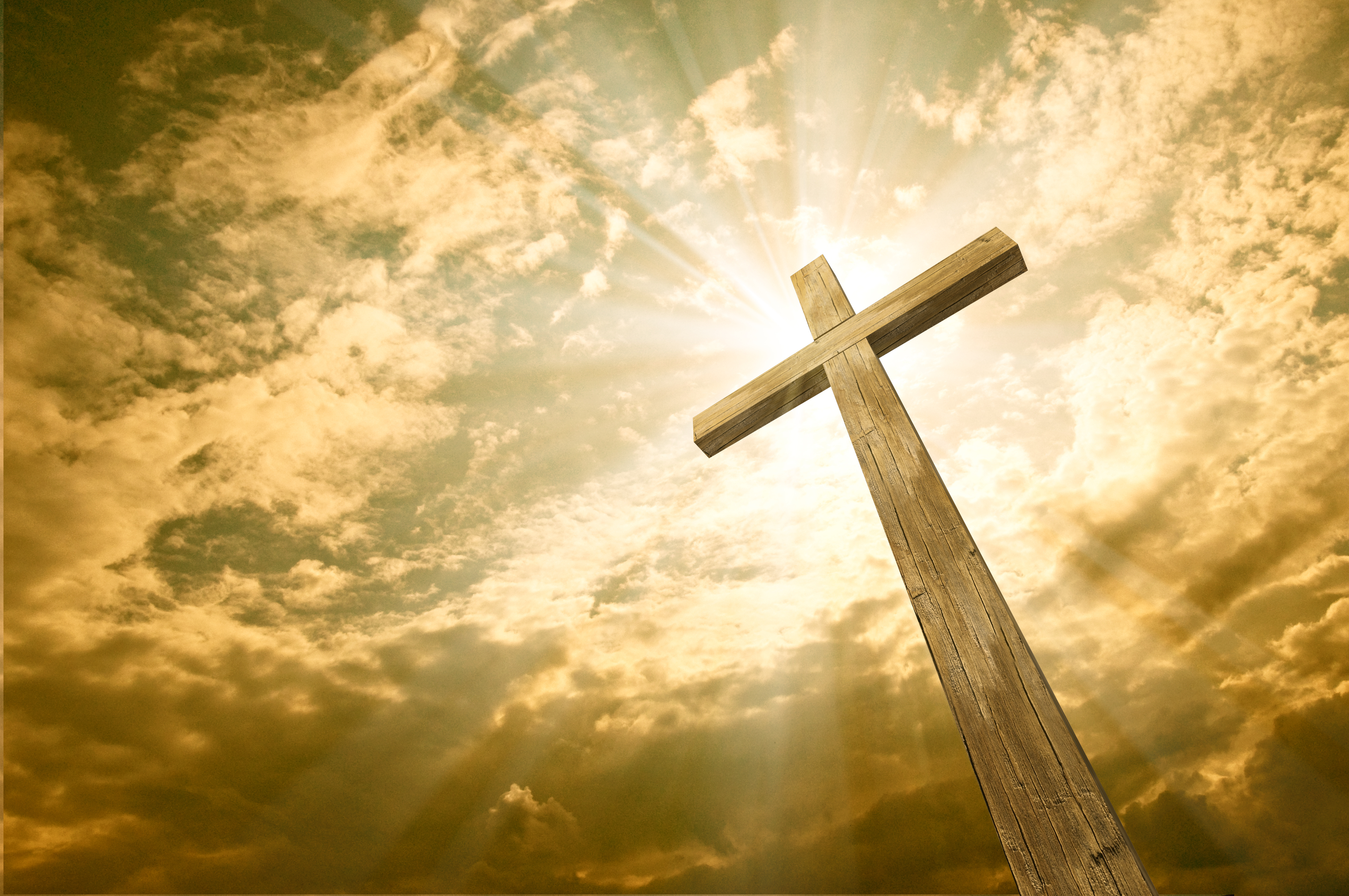Blood and Water

The apostle John was a personal eye-witness to the fact that a soldier walked up to the dead Christ hanging on the cross and pierced His side with a spear, and "immediately came there out blood and water" (Jn. 19:34-35). In 1 Jn. 5:6, John supplements his previous historical record with the truth of what that even meant spiritually. He says, "This is He who came by water and blood, even Jesus Christ; not by water only but by water and blood." Then in v. 8, he speaks of the Holy Spirit, the water, and the blood as the three witnesses to the Son of God.
So we see that both blood and water are connected with the death of Christ and, although connected, they are sufficiently distinct to be used separately as witnesses. Therefore, we must distinguish them in our thoughts.
Cleansing is connected with both blood and water in Scripture, "The blood of Jesus Christ…cleanses us from all sin" (1 Jn. 1:7) and, "that He might sanctify and cleanse it (the true Church) with the washing of water by the Word" (Eph. 5:26).
These two "cleansings" connect themselves with the two great effects of sin, its guilt and its defiling-power. The blood sets before us the death of Christ in atonement for our sins which cancels our guilt and brings us forgiveness. We are thereby cleansed judicially (legally). The water speaks of the same death but of its aspect whereby our sinful state has been judged and ended, to deliver us from the old conditions and associations for life in which we once lived. We are thus morally cleansed and the power of sin over us is broken. The hymn writer Toplady correctly put this thus:
Let the water and the blood
From Thy riven side which flowed,
Be of sin the double cure,
Cleanse me from its guilt and power.
Hebrews 9 and 10 show us the effectiveness, virtue, and power of the blood of Christ which:
- Purges (cleanses) the sinner’s conscience from dead works, to serve the living God (9:14).
- Has removed the transgressions of the Old Testament saint which had been accumulating under the law (9:15).
- Has ratified a new covenant (contract or testament) of grace (9:15-18).
- Has removed the believer’s sins and has laid the basis for the complete putting away of sin (9:22,26).
- Has so removed the believer’s sins for faith, that once-purged, the believer’s conscience is forever cleared as to the judicial question of his sins (10:2).
- Thus gives the believer boldness to enter into the presence of God (10:19).
- Has forever sanctified (set apart) the believer for God (10:10, 29).
The great subject of Hebrews 9-10 is the believer’s access to God as a result of the blood of Christ. The believer is judicially cleared to draw near to God by Christ’s one offering and it never needs to be repeated. Hence, the thought of one or once is repeated seven times in these chapters so that we won’t overlook the complete sufficiency and great glory connected with the once-spilt precious blood of Christ.
Although judicial (legal) cleansing-by-blood is the great theme in these chapters, moral cleansing is not forgotten. We draw near to God with both "our hearts sprinkled from an evil conscience and our bodies washed with pure water" (10:22) - evidently an allusion to the consecration of Aaron and his sons to the priestly office (Ex. 29). They were washed with water (v. 4) and also sprinkled with blood (v. 20), all picturing the death of Christ. So, Christ’s blood judicially cleanses us and gives us a perfect standing before God, while the water cleanses us morally by cutting us off from the old life in which we once lived and bringing us into the new life.
The moral cleansing by water needs to be kept up. Aaron and his sons were bathed with water from head-to-toe at their consecration and that bathing was not to be repeated. However, a laver was provided (Ex. 30:17:17-21) where the priests were instructed to wash their hands and feet. "When they go into the tabernacle of the congregation, they shall wash with water that they die not."
Just before He instituted His supper, the Lord Jesus girded Himself, poured water into a basin and began to wash His disciple’s feet (Jn. 13). Peter’s reluctance to let Jesus do it was used by the Lord to bring forth the truth that such washing is necessary if communion with the Lord in His heavenly position was to be enjoyed. He told Peter, "If I wash you not, you have no part with Me" (v. 8). Peter’s rapid change from reluctance to over-enthusiasm led the Lord to say, "He who is bathed needs only to wash his feet but is completely clean" (v. 10, R.V.).
This verse clearly distinguishes our two-fold cleansing-by-water. All we believers have been bathed (washed all over) once-for-all by the death of Christ: it has cleansed us from the old life. However, we also need the daily application of that death to our souls. We can not enjoy "part with Christ" without it.
Thus the coming of Jesus Christ, the son of God, was characterized by both water and blood. As we saw in 1 Jn. 5:6, the Holy Spirit specially guards this point by saying "not by water only but by water and blood." Why? Perhaps one reason is the tendency to forget the blood - to say that Christ came to simply cleanse man morally by setting him high ideals and then living out those ideals as an incentive for others to live a good life. Such people say that He thus makes "at-one-ment" - brought man and God together as one on the basis of good living. To counteract this false teaching, the Holy Spirit emphasizes both the moral cleansing and expiation (payment) for sin!
So the three witnesses (the Holy Spirit, water, and blood) to the Son of God remain. The Holy Spirit is the living, acting, and speaking Witness while the water and the blood are the two silent witnesses, but all three testify that He who came in this manner is the Son of God, the Fountain of eternal life; and for us who believe, this eternal life is ours in Him (1 Jn. 5: 5-13). May we truly thank God that both blood and water flowed from that spear wound.
No blood and water flowed from Jesus during His life. Consequently, contrary to what some believe, Christ’s life, as wonderful as if was, had no part in His payment for our sins. Sometimes Romans 5:19 is used to teach otherwise. It says, "By the obedience of One shall many be made righteous." However, a careful reading of the context (vv. 12-21) shows the opposite. The two heads, Adam and Christ, are being contrasted here, with the sin of one (Adam) with its subsequent disaster, and the righteousness and obedience of the Other (Christ) with its subsequent blessing. It is a question of the "one offense" and the "one righteousness" (v. 18). Christ’s one righteousness was obedience "even unto death and that the death of the cross" (Ph. 2:8).
Since the blood cleanses us from all sin, why do we need the water? That question is best answered by another question: "Are you not conscious of as much need for cleansing from the love of sin as from the condemnation of sin?" Christians need to hate sin. That is the reason for the "water." We also need the daily cleansing of which the laver speaks. There is much concerning us personally as well as many subtle influences of this world that need to be removed.
We don’t go back to the blood for daily cleansing. The believer is not to continually, so to speak, go through the cleansing and justifying process as to eternal salvation from sin, of which the blood speaks. "By one offering, He has perfected forever those who are sanctified" (Heb. 10:14). However, some have felt that 1 Jn. 1:7, "the blood of Jesus Christ, His Son, cleanses us from all sin," instructs us to go to the blood for daily cleansing. The word "cleanses" in this verse simply points out the inherent property of Christ’s precious blood - that it will always cleanse every sinner who comes by faith to Christ for salvation. We often use the present tense in this way. We say that "fire burns wood." We don’t mean that the fire will burn the wood a little bit almost every day (the wood can be burned up only once) but that an inherent, well-known property of fire is that it burns wood. Thus 1 John 1:7 does not support daily cleansing by blood.
Since Scripture does speak of our daily washing or cleansing by water, how do we get washed? It is by the Word of God, our Bibles. The water and the Word of God are clearly connected by Ephesians 5:25, "that He might sanctify and cleanse (the Church) with the washing of water by the Word." The Word alone shows us the wonderful death of Christ. Sin is thereby also clearly revealed. Our affections are thus cleansed. In Psalm 119:9, the question is asked as to how shall a young man cleanse his ways. The answer is, "By taking heed thereto according to Thy Word."
We often overlook this cleansing-effect of God’s Word even when we are anxious to study our Bibles. A young believer once told of the problem she had of remembering the teaching which she had heard. An older believer told her to go and bring him a sieve full of water but each time she tried, all the water ran through the sieve. When she finally told him that he had asked her to do an impossible thing, he pointed out that even if one drop of water hadn’t been retained, the sieve was much cleaner than before. Let us dwell often upon God’s Word. Even if we don’t become great Bible scholars, our lives will be cleansed thereby.
In John 3:5 we read about being born of water. By the water of the Word applied in the power of the Holy Spirit we are born again - made to possess a new life and a new nature which includes the condemnation of the old life and nature. As we have seen, this is pictured by the bathing of the priests from head to foot (Ex. 29:4, Jn. 13:10). John 3:5 does not speak of baptism! The Lord only speaks of one new birth which is by water and the Holy Spirit - the water being the instrument and the Holy Spirit being the power. This new birth is declared by the Lord to be indefinable and not controlled by man (3:8). Water baptism is both definable and completely controlled by man, so John 3:5 obviously does not speak of it.
In summary, we need the water both when we sin and (apart from actual sins) while we are in this world of defilement if we would worship, have communion (fellowship) with, or serve God. In Numbers 19, water is pictured as that which purifies from sin. In Exodus 30:17-21, water is pictured as removing every earthly defilement (without reference to any actual sins) so that we can draw near to God. We have also looked at this last aspect in the feet-washing in John 13. We also need the blood given once for all.





